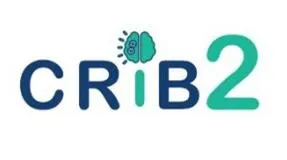The CRiB2 Study
What is the study about?
Many people who have been given a diagnosis of bipolar disorder experience difficulties with their memory, concentration or their ability to make decisions and solve problems. These problems can affect people’s quality of life and may make some everyday tasks or working difficult. Cognitive remediation is a psychological therapy which has been shown to help people improve their thinking skills.
We are using a computerised version of cognitive remediation, called CIRCUITS, which focuses on linking the training of thinking skills to many real-world situations and problems. Therapy sessions will be held two to three times per week (for approximately one hour) with the help of a therapist, and participants will be also encouraged to practice CIRCUITS in their own time.
What is the purpose of the study?
We recently completed a study (“CRiB study”) with 60 participants which found that CIRCuiTS can improve the thinking skills and daily life functioning of people with bipolar disorder. Importantly, these benefits remained three months after the therapy end.
This study provided promising results, but it wasn’t big enough to confidently support the benefits of cognitive remediation for people with bipolar disorder. Thus, we are now doing a bigger study, so that we can be more confident about whether cognitive remediation is effective.
What does participation involve?
We are looking for 250 people to take part in the CRiB2 study. Using a random process, 125 of them will be offered cognitive remediation therapy for 12 weeks, as well as continuing their normal treatment, while the rest will be asked to only continue their treatment as usual. #
All participants will be asked to attend three assessment sessions (before the intervention starts; after it has finished; and three months later), where they will complete a series of measures and questionnaires.
What is the possible benefit of taking part?
Cognitive remediation has been shown to help people with bipolar disorder and schizophrenia improve their thinking and daily life skills. Additionally, your participation will improve our understanding of bipolar and other mood disorders. In the long-term, this is likely to help with improving available treatments for people suffering from bipolar disorder and other similar illnesses.
Am I eligible to take part?
To be considered for the study, you will need to meet the following eligibility criteria:
- Aged 18-65 years old;
- Having a diagnosis of bipolar disorder – type I or II;
- Currently not experiencing disabling symptoms of depression or mania;
- Not having an impairing neurological or neurodegenerative disorder; and
- Recently not involved in alcohol and substance abuse
Contact
If you are interested in taking part in the study and would like more information, please email the study team.
Name: Dimosthenis Tsapekos (Trial Manager) or
Michail Kalfas / Rosie Taylor (Study Researchers)
Telephone: 075 9963 9010
E-mail: cribstudy@kcl.ac.uk
Please ask for our participant information sheet for more details.

Principal Investigators
Investigators
Affiliations
Contact us
If you are interested in taking part in the study and would like more information, please email the study team. Dimosthenis Tsapekos (Trial Manager) or Michail Kalfas (Research Assistant).







